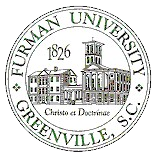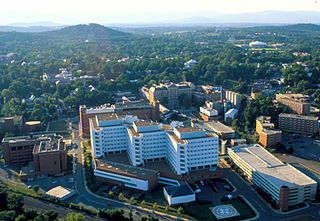
Clemson University is an American public, coeducational, land-grant research university in Clemson, South Carolina, United States. Founded in 1889, Clemson is the second-largest university in student population in South Carolina. For the fall 2017 semester, the university enrolled a total of 19,402 undergraduate students and 4,985 graduate students, and the student/faculty ratio was 18:1. Clemson's 1,400 acre campus is in the foothills of the Blue Ridge Mountains and sits next to Lake Hartwell. The university manages the nearby 17,500 acre Clemson Experimental Forest that is used for research, education, and recreation.
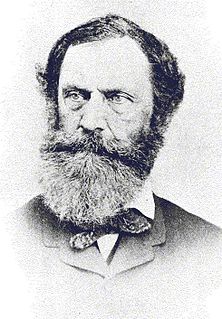
Thomas Green Clemson, (July 1, 1807 – April 6, 1888) was an American politician and statesman, serving as an ambassador and the United States Superintendent of Agriculture. He served in the Confederate States Army. He founded Clemson University in South Carolina.

Frank J. Howard was an American college football player and coach. He played college football for Alabama. After a career-ending injury, Howard joined the staff at Clemson College and became head coach in 1940. Howard coached the Clemson Tigers for 30 years, amassing the 15th most wins of any college football coach. He led Clemson to ten bowl games, an undefeated season in 1948, and several top-20 rankings during his tenure as head coach. During his stay at Clemson, Howard also oversaw the athletic department, ticket sales, and was an assistant coach for the baseball team. He was inducted into the College Football Hall of Fame, the South Carolina Sports Hall of Fame, the Alabama Sports Hall of Fame and the Clemson Ring of Honor. The playing surface at Clemson's Memorial Stadium is named after him.

Asbury Francis "Frank" Lever was a member of the United States House of Representatives from South Carolina.
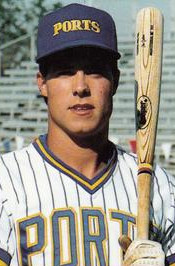
William James Spiers III is a former infielder in Major League Baseball who played primarily as a shortstop and third baseman from 1989 to 2001. He is currently an assistant football coach for Clemson. He was also a punter for Clemson University. He was a first round draft pick in the 1987 amateur draft. He debuted in the majors two years later with the Milwaukee Brewers on April 7, 1989.

The Clemson Tigers are the athletic teams that represent Clemson University. They compete as a member of the National Collegiate Athletic Association (NCAA) Division I level, primarily competing in the Atlantic Coast Conference (ACC) for all sports since the 1953-54 season. Clemson competes for and has won multiple NCAA Division I national championships in various sports, including football, men's soccer, and men's golf.

Riggs Field is a 6,500-capacity soccer-specific stadium located in Clemson, South Carolina. The stadium is home to the Clemson Tigers men's and women's soccer teams. It has also hosted the NCAA Men's Soccer Championship in 1987. The stadium opened for soccer in 1980, and was renovated in 1987, and again in 2013. Previous to this, it hosted a variety of the school's athletic teams, including the football team from 1915 until 1941 and the baseball team from 1916 until 1969. It is named after Walter Riggs, the former coach of the football team and president of Clemson (1910–1924). Riggs Field is the fifth oldest collegiate athletic facility in the nation.

Edward James "Doc" Stewart was an American football, basketball, and baseball player, coach, and college athletics administrator. He was also the founder, and player-coach of the Massillon Tigers professional football team.
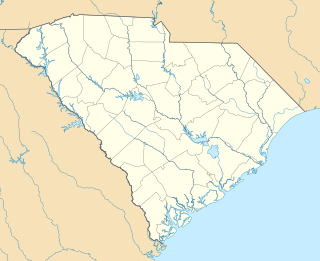
The Clemson–South Carolina rivalry, also called the Carolina–Clemson rivalry, is an American collegiate athletic rivalry between the University of South Carolina Gamecocks and the Clemson University Tigers. Since 2015, the two also compete in the Palmetto Series, which is an athletic, head-to-head competition between both schools, not just in football, but also more than a dozen competitions throughout each school year. Both institutions are public universities supported by the state of South Carolina, and their campuses are separated by only 132 miles. USC and Clemson have been bitter rivals since 1896, and a heated rivalry continues to this day for a variety of reasons, including the historic tensions regarding their respective charters and the passions surrounding their athletic programs.

The Clemson Tigers, known traditionally as the "Clemson University Fighting Tigers,” represent Clemson University in the sport of American football. The Tigers compete in the Football Bowl Subdivision (FBS) of the National Collegiate Athletic Association (NCAA) and the Atlantic Division of the Atlantic Coast Conference (ACC). Consistently ranked among the most elite college football programs in the United States, the team is known for its storied history, distinctive helmet, fight song and colors as well as the many traditions associated with the school.
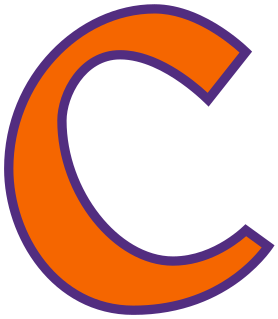
The Clemson Tigers baseball team represents Clemson University in NCAA Division I college baseball. The team participates in the Atlantic Division of the Atlantic Coast Conference. The Tigers are currently coached by head coach Monte Lee and play their home games in Doug Kingsmore Stadium. The program has reached the NCAA Tournament in all but one season dating back to 1987. Clemson has made twelve appearances in the College World Series with an all-time record of 12–24 in Omaha.

The South Carolina Gamecocks football program represents the University of South Carolina in the sport of American football. The Gamecocks compete in the Football Bowl Subdivision of the National Collegiate Athletic Association (NCAA) and the Eastern Division of the Southeastern Conference. Will Muschamp currently serves as the team's head coach. They play their home games at Williams-Brice Stadium. Currently, it is the 20th largest stadium in college football.

Alonzo Sheck "Shack" Shealy was a college football player and coach. He was the fifth head coach of the Clemson college football program in 1904, and the only Clemson graduate (1899) to be head coach of his alma mater.

The Texas A&M Aggie baseball team represents Texas A&M University in NCAA Division I college baseball. The Aggies have competed in the Southeastern Conference since 2013. The Aggies play home games at Olsen Field at Blue Bell Park. The team is led by head coach Rob Childress.

James Adger "Jack" Forsythe, Jr., nicknamed "Pee Wee" Forsythe, was an American college football player and coach. Forsythe has an important place in the history of college athletics in the U.S. state of Florida as the first head coach of the team now known as the University of Florida Gators. He had previously been the last football coach at Florida State College, now Florida State University, before it was reorganized as a school for women.

The 2010 South Carolina Gamecocks baseball team represented the University of South Carolina in the 2010 NCAA Division I baseball season. The Gamecocks played their home games in Carolina Stadium. The team was coached by Ray Tanner, who was in his fourteenth season at Carolina.

William L. Laval was an American minor league baseball player, baseball manager, and college baseball, football, and basketball coach. He held head coaching positions at the University of South Carolina, Furman University, Emory and Henry College, and Newberry College. He is the only South Carolina football coach to have produced seven consecutive winning seasons. In 2009, The State called him "the greatest collegiate coach" in the history of South Carolina.

The 1896 Clemson Tigers football team represented Clemson Agricultural College in the 1896 college football season. Professor Walter Riggs brought the game to Clemson from his alma mater, Auburn, where he was a member of Auburn's first football team. The Tigers completed their first season with a record of 2–1, with wins over upstate neighboring colleges Furman and Wofford, and a loss in the first installment of the rivalry with South Carolina. All games were played in the opposing school's home city. The rivalry matchup with South Carolina was held on Thursday morning at the South Carolina state fair, a tradition that would endure until 1960. Riggs served as the team's coach while R. G. Hamilton was the first captain.
The 1899 Clemson Tigers football team represented Clemson Agricultural College in the 1899 Southern Intercollegiate Athletic Association football season. The Tigers completed their fourth season with a record of 4–2, with wins over Davidson, South Carolina, North Carolina A&M, and Georgia Tech and losses to Georgia and Auburn. Clemson did not host any games, but played a mix of away and neutral site games. Walter Riggs served again as coach, having also led the team in its inaugural 1896 season, while J. N. Walker was the captain.
Monte Wesley Lee is an American college baseball coach. He is the head coach for the Clemson Tigers baseball team. From 2009 until 2015, he was the head coach of the Charleston Cougars, his alma mater. Under Lee, the Cougars reached four NCAA Tournaments, including one NCAA Super Regional.

